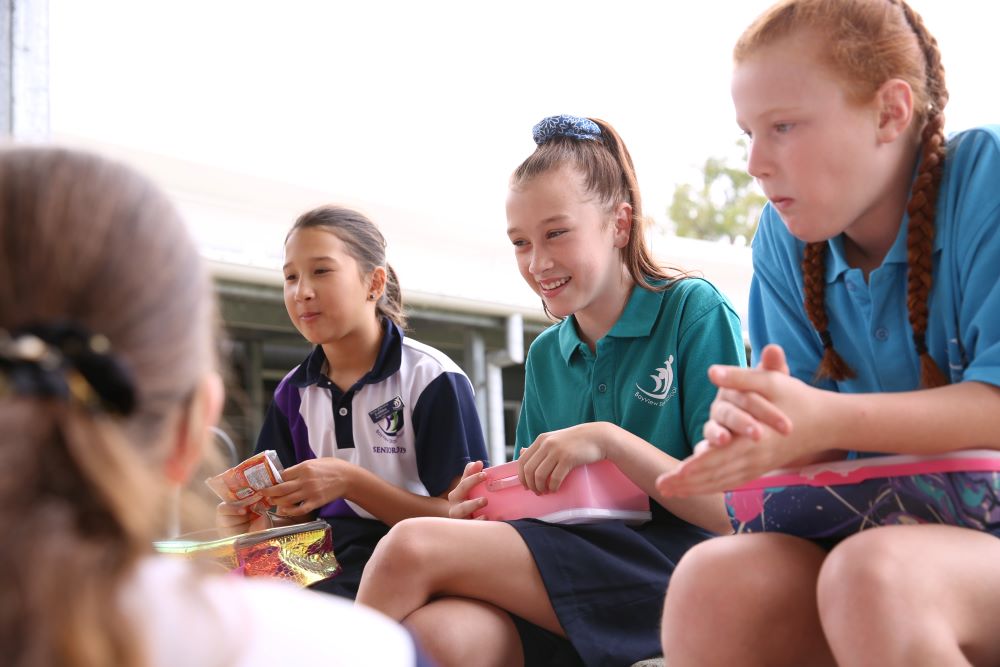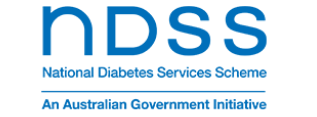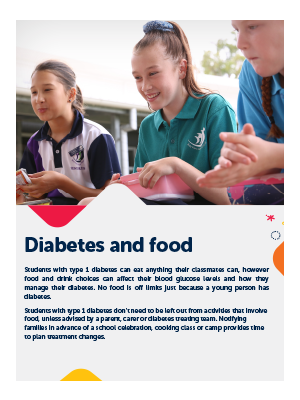No food is off limits just because a young person has type 1 diabetes
However, food and drink choices can affect their blood glucose levels and how their type 1 diabetes needs to be managed.
Young people with type 1 diabetes should follow the same nutrition guidelines that are recommended for all people— food that is low in saturated fat, salt and added sugar. No food is out of bounds, including lollies, chocolate and other sugary foods.
Young people with type 1 diabetes don’t need to be left out from activities that involve treat foods unless advised by their family or type 1 diabetes treating team. Telling families ahead of time that treats may be offered will give them time to plan changes to their treatment so the young person can be included.
Coeliac disease
People with type 1 diabetes are at a higher risk of developing coeliac disease, so the student you are educating or caring for may have both conditions. Coeliac disease is an autoimmune condition where the body becomes intolerant to gluten. Gluten is found in wheat, rye, barley and oats. This means that people who have coeliac disease need to follow a gluten free diet, including foods used for hypo treatment.
>> NDSS factsheet: Coeliac disease and diabetes
Eating times
It will be helpful to include the school timetable in discussions regarding eating. It may be possible for the diabetes treating team to make changes to the young person’s insulin regime to fit in with school mealtimes. Specific advice needs to be included in the diabetes management plan.
>> NDSS factsheet: Understanding food labels




